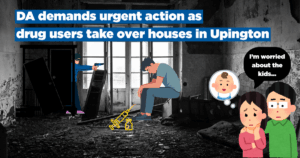The Democratic Alliance (DA) has called on the Northern Cape Health Department to issue a public explanation as to why it persists in snubbing medical partners in the private and NGO sectors, depriving over 1000 farm workers and several rural communities of access to health care.
Since last year, the health department cut off supplies and communication with a private health care facility operating under a provincial farming company. This is contrary to the Memorandum of Understanding (MOU) between the company and the department, which permits the facility to provide basic health care services to farm workers via the services of a professional nurse. The health service is offered in exchange for the provision of medication, test kits, clinical tools and stationery by the department.
The impact of the department’s rash decision to no longer honor the MOU, is damaging to the health of the more than 1000 farm workers, employed in far outlying areas, by the company.
Despite numerous attempts to get answers from MEC Maruping Lekwene and Acting HOD, Mxolisi Mlatha, my letters have not been answered.
This is not an isolated situation.
A medical outreach programme, that annually visits the Northern Cape to help mop up some of the province’s backlog in medical care in rural areas, struggles every year to get the necessary support. This is despite its MOU with the department, granting support in the form of medical supplies.
It is ironic that the very government that pushes for a National Health Insurance (NHI), on the basis of greater partnerships between the private and public healthcare systems, fails to provide universal access to quality health care for all South Africans, when the opportunity arises.
The DA has again submitted urgent correspondence to the MEC and HOD, to resolve this serious obstruction to access to health care.
If the department really cares about the people of the Northern Cape, it will restore partnerships with entities that have the ability to ease the burden on the provincial health care sector and put the health and wellbeing of the 1,1 million people of the province, who depend on government health services, first.









